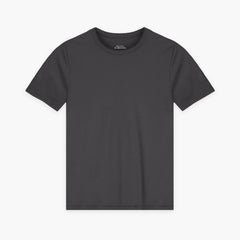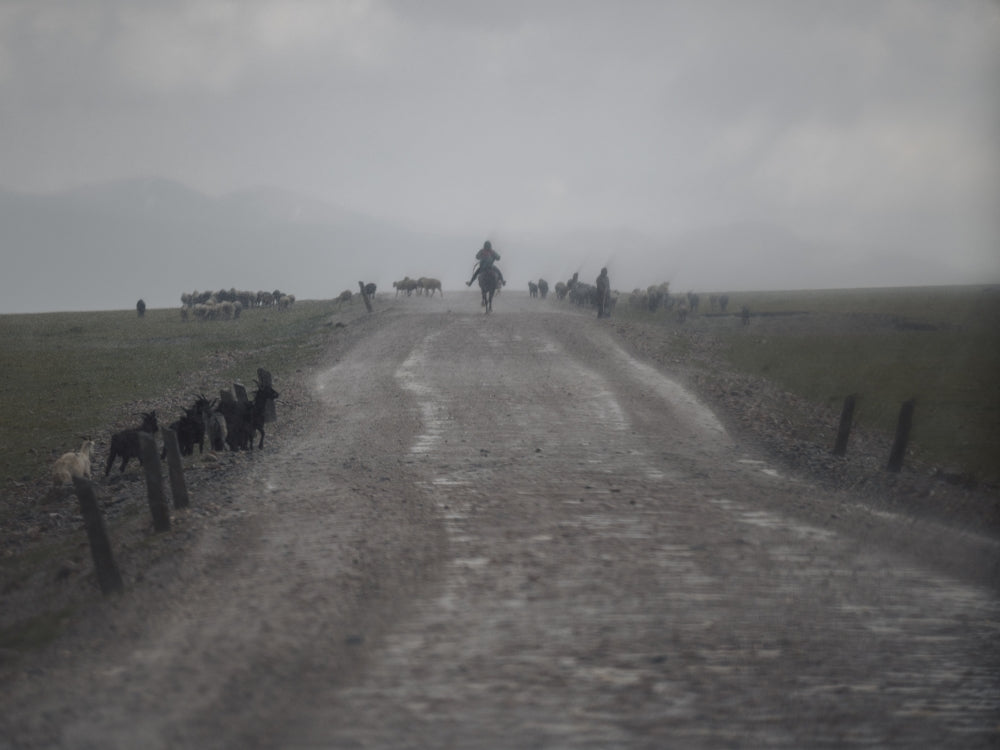This story starts seemingly simple—a solo backpacking trip to Kyrgyzstan.
With its wildlife, mountains, and welcoming nomadic people that will offer yurt refuge for the night, I considered the Kyrgyz backcountry a paradise and wanted to indulge in pockets of it without interference from the outside world.

On the way to the mountains, my contact with the cardinal Kyrgyz people was frequent. But as soon as I hit the wilderness, I instinctually started sneaking around. From some boyhood instinct, I considered invisibility the correct manner in which to engage with the wild. I followed deep sheep trails cut through the spring-snow cornices in the afternoons, where my tracks would melt away in hours. During midday, I'd watch wild horses, search lynx tracks and look for springs to soak in.
While backpacking, I seldom had a plan for sleeping (or carrying the tent), and this time was no different. When dark clouds covered the valley below me, I knew that is time to descend and start looking for shelter. Making my way down, I came across a shepherd telling me in broken Russian — нет времени идти вниз пойдем со мной (no-time-go-down-come-with-me). I knew nothing about Kyrgyz storms, so I went. We came to his small yurt settlement, and his wife and daughter greeted me and offered to stay until the storm was over.
Fast forward. I was eating kumys (a kind of horse cheese), counting sheep, and learning how to open a yurt. As I sat around the fire in the yurt, my mind kept returning to the question of what had happened to the Kyrgyz wool industry. Despite my attempts to learn more from the nomadic shepherd and his family, the language barrier proved too great, and I was left with more questions than answers.
Determined to uncover the truth, I made my way back to the capital city of Bishkek, where I searched high and low for information. I visited embassies, local markets, and even the ministry of agriculture, but I came up empty. Disappointed, I returned home to Prague with mixed feelings about my trip.
But as it turned out, my search for information was far from over. Weeks later, I received a call from the Honorary Consul of Kyrgyzstan, inviting me back to the country to meet with farmers and the ambassador. They promised to show me what was left of the Kyrgyz wool industry.

Indeed short notice, but curiosity was too great to ignore. So, I decided to bring along my friend and business partner, Robin.
After speaking with several local farmers and touring abandoned factories, it became clear that there were two main issues at hand. Firstly, Chinese companies had taken over the wool market, driving prices down to unsustainable levels for Kyrgyzstan's sheep farmers. Many were even considering switching to raising sheep for meat or other livestock, such as yaks or cows. Secondly, the factories we visited were equipped with outdated machinery that couldn't produce yarn of a high enough quality for clothing. As a result, these factories were forced to close.

As we traveled across the country, I couldn't help but wonder why these people were so willing to spend their time showing us everything there was to know about wool and the Kyrgyz wool industry. We have told them OWEN STITCH is a small brand and couldn't possibly buy up all this wool and save the industry on our own.

But as it turned out, they weren't looking for us to do that. They simply wanted to get to know us better and were searching for partners to help them establish a new supply chain to Europe and save their struggling wool industry. And so, on the final day of our trip, we shook hands and formed a new company called KYRINO (Robins's idea, combination of Kyrgyzstan and merino).
Eight months later, we made our first import of 20 tons for a wool processing factory in Bulgaria. Now, it's January 5th, 2023, and we've already sold 30 tons of wool, with another 100 tons in the works. We estimate that around 5% of this volume will be used for our own collection this coming summer.







